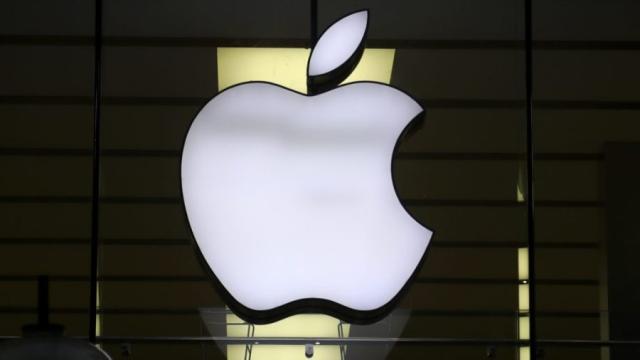
The United States has filed a major lawsuit against Apple, accusing the tech giant of monopolizing the smartphone market and stifling competition.
The Justice Department argues that the corporation misused its influence over the iPhone app store to “lock in” customers and developers.
It accuses the company of using illegal means to combat apps perceived as a threat and make rival goods less enticing.
Apple has vowed to “vigorously” battle the lawsuit and denies the allegations.
The extensive complaint, filed in a federal court in New Jersey alongside the attorneys general of 16 states, is one of Apple’s most significant challenges to date, as the company has faced mounting concerns about its policies in recent years.
It claims Apple utilized “a series of shapeshifting rules” and restricted access to its hardware and software, in a bid to boost its profits while raising costs for customers and stifling innovation.
“Apple has maintained monopoly power in the smartphone market not simply by staying ahead of the competition on the merits but by violating federal anti-trust law,” Attorney General Merrick Garland said at a press conference announcing the suit.
Apple becomes the latest tech giant under siege
“Customers should not have to pay higher prices because companies break the law.”
The 88-page complaint focuses on five instances in which Apple allegedly misused its power.
For example, the US claims that Apple exploited its app approval process to stymie the creation of so-called super apps and streaming apps, fearing that such programs would provide customers with less motivation to continue with iPhones.
It also claims that Apple has made it impossible to link iPhones to rival smartwatches and prevented banks and other financial institutions from using its tap-to-pay technology, allowing Apple to make billions of dollars in fees from Apple Pay transactions.
The case also criticizes Apple’s treatment of messages sent from rival phones, which it distinguishes with green bubbles while limiting movies and other capabilities. It claims that Apple’s actions have produced a “social stigma” that has helped the company maintain its market dominance.
Apple claimed that customers were loyal because they were happy, and that under US law, it was free to choose its business partners. It has cited privacy and security reasons to explain its policies.
The company said it would seek the court to dismiss the action, which is expected to fail.
“We believe this lawsuit is wrong on the facts and the law, and we will vigorously defend against it,” the company said.
According to Bill Baer, a visiting fellow at Brookings and former anti-trust official under the Obama administration, the case will be decided based on purpose.
“Anti-trust laws and the court’s interpretation of them suggest that once you’re a monopolist,” he said, “if you do engage in behaviors that have no legitimate business justification other than to limit competition and cement your monopoly, then that is problematic.”
It is the third legal action taken by the US government against Apple since 2009, and the first antitrust lawsuit brought against the corporation during President Joe Biden’s administration.
If the government wins its case, it might force Apple to change its current contracts and procedures, or perhaps lead to the company’s dissolution.
Apple stock plunged more than 4% as investors weighed the consequences of the court battle.
Any potential modifications would take years to materialize as the lawsuit progresses through the courts.
Rebecca Allensworth, a Vanderbilt University professor, described the case as “a blockbuster” in light of other actions filed by the Justice Department against large digital companies. Google, Meta, and Amazon are all facing similar lawsuits.
She stated that the goal was to improve smartphone functioning while also making technology and software more available to consumers and other enterprises.
“It’s not about breaking up Apple into small units or spinning off divisions,” she went on to say.
Apple is facing a growing legal backlash for its iOS environment and business practices
It is currently involved in a lengthy legal struggle with Epic Games, the company behind Fortnite.
Last month, the EU penalized it €1.8 billion (£1.5 billion) for violating competition regulations regarding music streaming.
According to the European Commission, the company restricted streaming services from telling customers about payment options other than the Apple App Store.
Margrethe Vestager, the competition commissioner, ruled that Apple had exploited its market dominance for a decade, and ordered the tech giant to remove all of the restrictions. Apple said it would appeal against the decision.
Anat Alon-Beck, a commercial law professor at Case Western Reserve University in Ohio, described the Justice Department’s current action as “far more extensive” than its past legal battles in the EU.
“It’s not just about the 30% app store fee, but about the core unfair practices of Apple,” she said, adding that it was “about time” that the DOJ took action.
“Apple systematically excludes rivals from the Apple ecosystem. By doing that, Apple is hurting so many startup businesses, stakeholders, customers, and, in my opinion, its shareholders,” she said.
According to the Justice Department, Apple’s dominance of the US smartphone market surpasses 70%, while its share of the overall smartphone market exceeds 65%.
